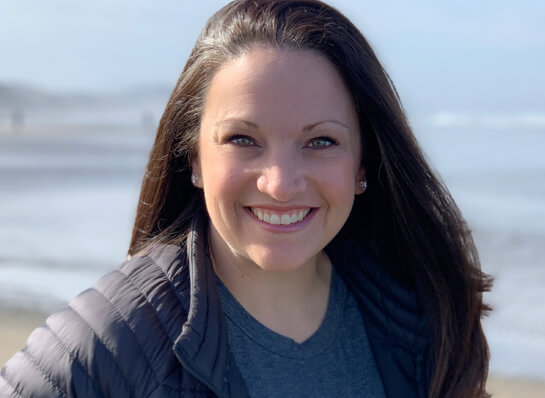Learn how to strengthen your specialty, hone your craft, and build expertise so you can command higher fees and more easily attract quality freelance clients.

I believe in working with specialists.
It’s why I’ve stayed fairly narrow in my services: I’m a designer at heart who enjoys copywriting and craves organization and clear structure. I’m a strategy and systems person through-and-through, so pairing content strategy, information architecture, content creation, and design just makes sense.
It’s also why I leave things I’m not great at to others, why I bring in partners, and why I choose to work with subcontractors for specific things my clients need.
When I need to get something done:
- I don’t want a generalist who knows the basics about a lot of things and could figure out how to complete my task if I hired them.
- I don’t have time to work with someone who doesn’t know the unique nuances applicable to my task and understand the minutiae — what I don’t know or haven’t considered.
- With the rapidly changing pace of technology and software, I can’t work with someone who isn’t all-in on their expertise and constantly learning.
When I hire someone to help me solve a problem, I’m hiring them because I don’t know what I don’t know, and I need them to make recommendations, provide direction, and share best practices. I need them to help me avoid mistakes and consider the future implications of our current decisions.
I need and want a specialist, not a generalist, and I’m guessing you feel the same way. What is often forgotten, however, is that clients also seek specialists.
Expertise Is A Choice
In nearly every conversation about growing your business, someone will bring up the notion that choosing a niche is the best way to command higher fees and more easily attract clients. While this is true, most discussions about business niches focus on selecting an ideal client. Many designers, developers, copywriters, consultants, and creatives struggle with this approach, however, because they don’t have one type of client…
Instead, they offer a niche set of expert services to a broad range of clients.
As a freelancer or micro agency owner, you get to decide what your specialization will be. You can choose to specialize in:
- The implementation of a specific platform, like those who learn everything they can about WordPress, Squarespace, Shopify, or Teachable.
- Specific software, like WooCommerce, Elementor, Mai, Beaver Builder, or Genesis Pro.
- A type of website, like e-commerce sites, membership sites, or online course sites.
- Specific tools, like Mailchimp, OptinMonster, Content Snare, NinjaForms, LifterLMS, or Gusto.
- Specific services, like copywriting, graphic design, web design, content design, funnel development, brand development, SEO, or analytics.
- A specific problem, like not enough clients or customers, low conversion rates, slow list growth, high cart abandonment, customer churn, or low course completion rates.
- Specific goals, like a successful launch, doubling revenue, entering a new vertical market, or selling a business.
Clients Want Specialists
When a prospective client is looking for a partner to build their new website, they’re not looking for someone who “kind of, sort of” knows what they’re doing and could figure it out. They are looking for an expert — a specialist they can trust to do it right and deliver what they need, even if they don’t exactly know what they need.
Becoming a specialist is simply a matter of choosing a focus and deep-diving into the nuances and minutiae of that focus.
With knowledge greater than any generalist, you’ll have more engaging and meaningful conversations with prospective clients who walk away…
- Realizing,“The other person I interviewed didn’t ask me any of these questions.”
- Thinking, “This person really knows their stuff. I can trust them to know what I don’t.”
- Knowing, “I trust this person more than the other, I want to work with them.”
Specialists Need Some General Knowledge
As much as niche expertise is touted, you can’t discount the value of broad general knowledge and understanding. Generalists get into trouble because they try to develop expertise in too many things. Specialists, on the other hand, go deep within one area, then learn the important fundamentals of related areas.
With this approach, specialists are well-versed enough to have intelligent conversations with clients about a broad range of topics that may affect the project or task at hand. And often smart enough to know when something lies outside their expertise.
How To Enhance Your Expertise
I offer graphic design, web design, brand design, content strategy, and copywriting services, which means much of my learning supports growing my expertise for those services. I regularly read articles, watch videos, listen to podcasts, and attend conference talks and webinars delivered by other designers and content creators to identify opportunities to hone my craft, further develop my expertise, and improve my systems and processes.
This practice keeps me on my game and tuned into what’s happening in my industry, and it ensures I show up as the best possible version of myself for my clients — one who is basing her knowledge and recommendations on current data, not five year-old data.
To improve your expertise and hone your craft, you need to always be learning from others in your industry — from people who do what you do. That often means going to those conference talks on topics “you already know” because while you may know it, you probably don’t know everything, you probably haven’t tried everything, and you are most likely not doing everything, which means you’ll walk away with a gold nugget or two that will help you do better business.
This same approach is why I see smart content creators and copywriters sign up for and attend Content Camp and savvy, experienced designers and developers enroll in Profitable Project Plan. They know that to grow and continue to attract top-level clients they must work on their craft and their business — and that sometimes the smallest ah-ha moment can yield tremendous results.
How To Better Serve Clients With General Knowledge
Specialists supplement their expertise by also investing in basic knowledge about complementary topics that play with, affect, and interact with their core specialty. That means gaining a broad awareness and holistic understanding of related strategies, tactics, tools, services, and methods. This practice will make you even better at what you do.
For example, investing in education on conversion optimization, SEO, analytics, and email marketing makes you a better web designer who can better advise and answer questions from clients about how those topics impact the design of their website.
Again, the goal of this education is not to develop another specialty but to gain knowledge and awareness — to know enough to discuss a topic intelligently or to hire a specialist when needed.
What’s Your Learning Plan?
The most successful people I know, and pretty much every specialist I know, never stop learning and pursuing knowledge.
So my question to you is, “What learning opportunities are on your calendar?”
Here are a few ideas to help you prioritize learning:
- Block out time in your calendar each month for ongoing learning and education — time to read the articles you bookmarked, listen to the podcasts you saved, and watch the videos and webinars in your queue.
- Aim at registering for (and actually attending/fully engaging with) one webinar or training in your specialty and one directly adjacent to your specialty each month. If that’s too much, alternate one each month.
- Join a training program tailored to your business. For example, Profitable Project Plan is my business training and mentorship program specifically for web designers and developers.
- Join a business mastermind group that is specific to your expertise or is comprised of members from adjacent specialties.
- Join and actively participate in networking and business groups — either in-person or virtually. I love the GoWP Niche Agency Owners Facebook Group!
- Get a side hustle or hobby project going that leverages your specialty. For example, if you build e-commerce sites, start your own e-commerce site. Use your side project as a testing ground to learn and expand your skills.
With that said, the best price of advice I can give to any freelancer who wants to grow their business is this: Never stop learning and honing your craft.
So get out there and learn.
